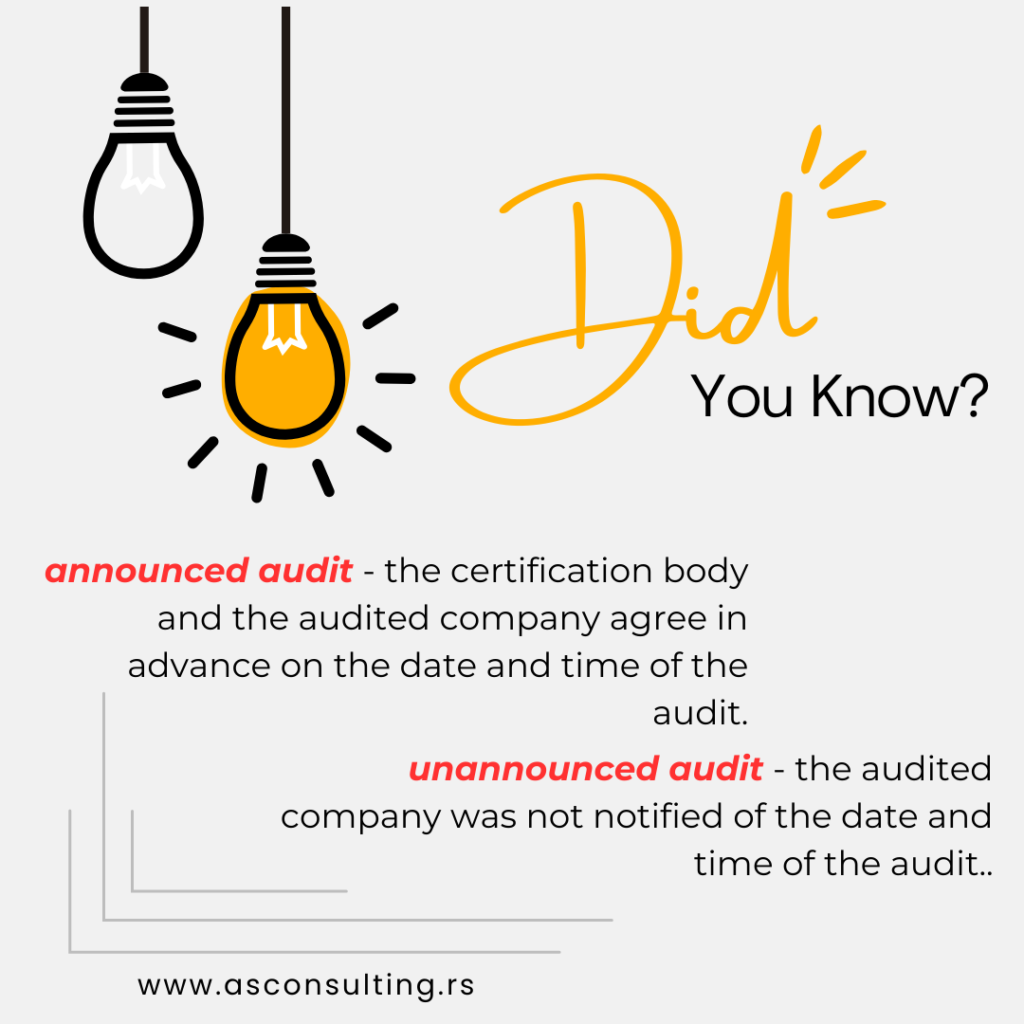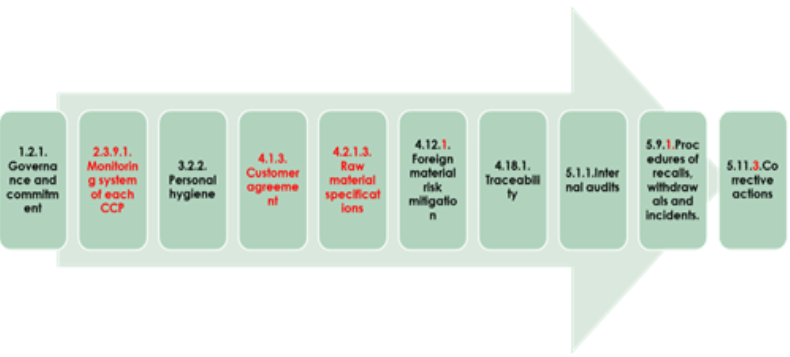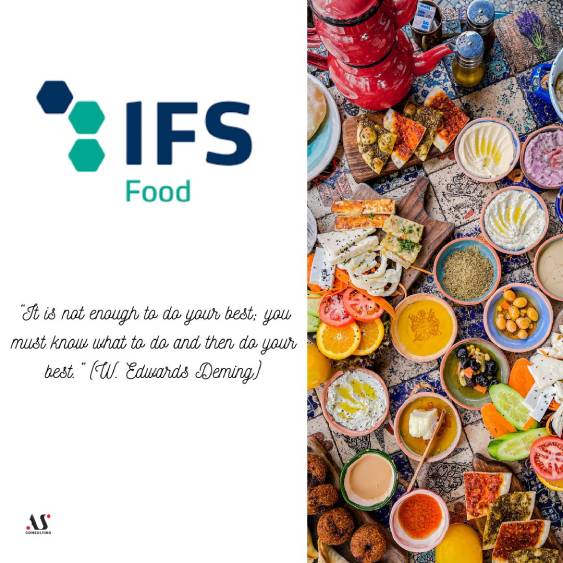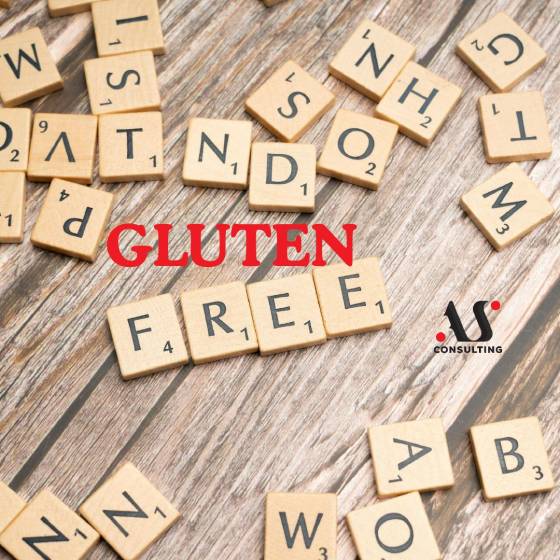
STORIES FROM PRACTICE – Part Two: WATER
November 21, 2024
ALLERGEN THRESHOLD – WHEN EVEN A LITTLE IS TOO MUCH
December 13, 2024
The Origin of the IFS Food Standard
The IFS Food Standard (the first in the family of IFS standards) was created in 2003 by the German Retail Federation (HDE) and its French counterpart (FCD). The standard was developed to address the need for controlling private-label (PL) manufacturers. This need arose due to increasing consumer demands, growing legal responsibilities for retailers, and the globalization of product supply. A unified standard for quality and food safety was essential.
The standard also aimed to reduce the time required for multiple inspections, benefiting both retailers and suppliers.
Today, the IFS Food Standard is managed by IFS Management GmbH, a company owned by FCD and HDE, and is applied across all stages of the food processing industry. The IFS Standard is recognized by the GFSI (Global Food Safety Initiative).
The first implemented version (Version 3) of the IFS Standard, developed by HDE, came into effect in 2003. The current version is Version 8.
Application of the IFS Food Standard
Initially, the IFS Food Standard was predominantly applied to private-label manufacturers but later extended to manufacturers of proprietary brands. It is applicable across all stages of the food processing industry.
For more details on private-label brands, refer to our article:
Why Do Companies Choose IFS?
For many companies, implementing the IFS Standard is a customer requirement. Returning to the beginning of this text: by applying such a comprehensive standard, customers can trust that your company will deliver a product that is safe, authentic, high-quality, and compliant with both legal and customer-specific requirements (if applicable).
On the other hand, many companies recognize the benefits of the IFS Standard, including easier access to customers and export opportunities.
Types of IFS Audits
There are several types of audits under the IFS Standard:
- Initial Audit: The first audit conducted to meet the IFS Standard’s requirements, or an audit following an interruption in the certification process.
- Recertification Audit: Conducted annually to maintain certification.
- Follow-up Audit: If an initial or recertification audit results in a single MAJOR non-conformance and a total score ≥75, a follow-up audit allows the company to achieve certification.
- Extension Audit: Additional audits for production lines not operational during the “main” audit.
Are Companies Notified About Audits?
- Announced Audits: Scheduled at a mutually agreed time between the company and the certification body.
- Unannounced Audits: Conducted within a defined timeframe, but the company is not informed of the exact date. This option may be voluntary (if requested by the company) or mandatory (once in a three-year cycle). Refusal to grant access to the auditor results in an unsuccessful audit.

Scoring System
The IFS Food Standard includes over 250 requirements, all of which must be reviewed during each audit. The standard’s key principles include compliance with:
- Legal requirements
- Standard requirements
- Customer requirements
The scoring system determines whether a company is COMPLIANT or NON-COMPLIANT with the standard’s requirements. If compliant, a requirement is rated “A,” earning the company 20 points. Non-compliance may result in:
- Deviations
- Non-conformities

Non-conformities are classified as:
- MAJOR
- Knock Out (KO)
What is the difference between these two types of non-conformity?
The IFS Food Standard includes 10 KO requirements, which can only be scored as KO in case of significant deviations:

Therefore, the above 10 IFS requirements can be evaluated as follows:

All other requirements of the standard (excluding 10 KO requirements) can be graded MAJOR in case of deviation from:
- Legal requirements
- Customer requirements
- Standard requirements where deviation leads to jeopardizing product safety
And finally, the total score (after evaluation of all requirements of the standard) determines whether or not the company will win the certificate: a minimum of 75% is required to win the certificate!
We distinguish the Foundation level (75-95%), as well as the Higher (over 95%) level. Many customers have a requirement that in addition to the company having to obtain the IFS certificate, it must also achieve a higher level.
Therefore, arm yourself with knowledge!😊
Implementing the IFS Food Standard is not easy, and the scoring process can be challenging, especially during initial audits. To avoid early mistakes, contact our agency for assistance with:
- Implementing IFS requirements
- Providing support during audits
With our help, certification is within reach! 😊




